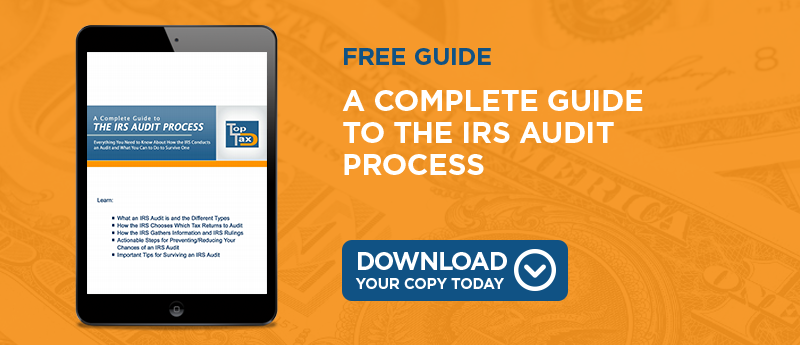
When you are selected for an IRS audit, you may be overcome with worry and stress. In reality, however, going through an audit differs little than any other legal process.
You have rights and responsibilities that can make the entire audit go by quickly and end with the best solution for both you and the IRS. You can prepare for your meeting by learning how this agency gathers its information and what your options are both during and after the audit.
How the IRS Gathers Information
The IRS can get information about you or your business through various means. It most often will summon third parties with which you have ties to provide it with these details. These third parties can include your bank, your employer, or any company with which you have contracted.
It can also summon you to provide the information it needs to carry out an audit of your tax returns. You may be required to provide up to three years' worth of documentation that proves income, assets, and other facts.
Selection for and Notification of an Audit
The IRS can audit you for a number of different reasons. First, you may be selected randomly by the IRS' computer system.
Your returns may be perfectly fine, with no apparent problems. Nonetheless, if the computer selects you, the IRS will carry out an audit of your tax records.
Second, you may be selected if the IRS needs you to verify documentation it has for your returns. If the amount of income you claimed does not match up with what you have on your return, for example, it may ask that you provide your W-2 or 1099 for verification.
Last, the IRS may audit you if one of your professional associates, such as a business partner or investor, is being audited. It may verify this person's details by checking your own business and tax records.
If you are selected for an audit, the IRS will notify you in writing by mail. It may also contact you by telephone. This notification gives you time to hire legal counsel or a tax professional, as well as decide if you would like the audit to take place at home, your office, or the office of your lawyer or accountant.
Your Rights and Options
Just as you have rights during a legal proceeding, you also have rights as you are being audited. You are entitled to:- Courtesy and respect
- Privacy
- Know what information the IRS wants from you and why
- Representation from a tax professional
- Appeal the outcome of the audit
Likewise, the audit has three possible outcomes. First, the IRS may find that no change is necessary to your returns. Second, you can agree with the results and pay any money that is owed.
Third, you can disagree with the findings and file for mediation or an appeal of your case. If you appeal the decision, you would do well to rely on professional tax advice from a tax firm.
Avoiding an Audit
An audit can be a stressful process that takes valuable time away from your everyday life. When you want to avoid being singled out by the IRS, you can take these preventative steps before you file taxes:- Incorporate your business: Incorporating your business helps you avoid filing Schedule C forms, which often catch the attention of IRS auditors
- Report charitable donations honestly: Avoid overstating your non-cash donations to charities
- Collect all wages from your S corporation if you own one
- Report all household income
- File all W-2s, 1099s, and other income verification forms
- Check your math and make sure your numbers add up on your return
Finally, with the IRS financially rewarding whistleblowers, you should avoid bragging about how much you saved on your taxes, even if your bragging is honest and in earnest. Someone could tip off the IRS that you should be audited to make sure you paid your due amount to the government.
By having all of the information you need, you can go into an IRS audit fully prepared and aware of what could happen. You can avoid an audit entirely by taking some preventative steps while filing taxes.




